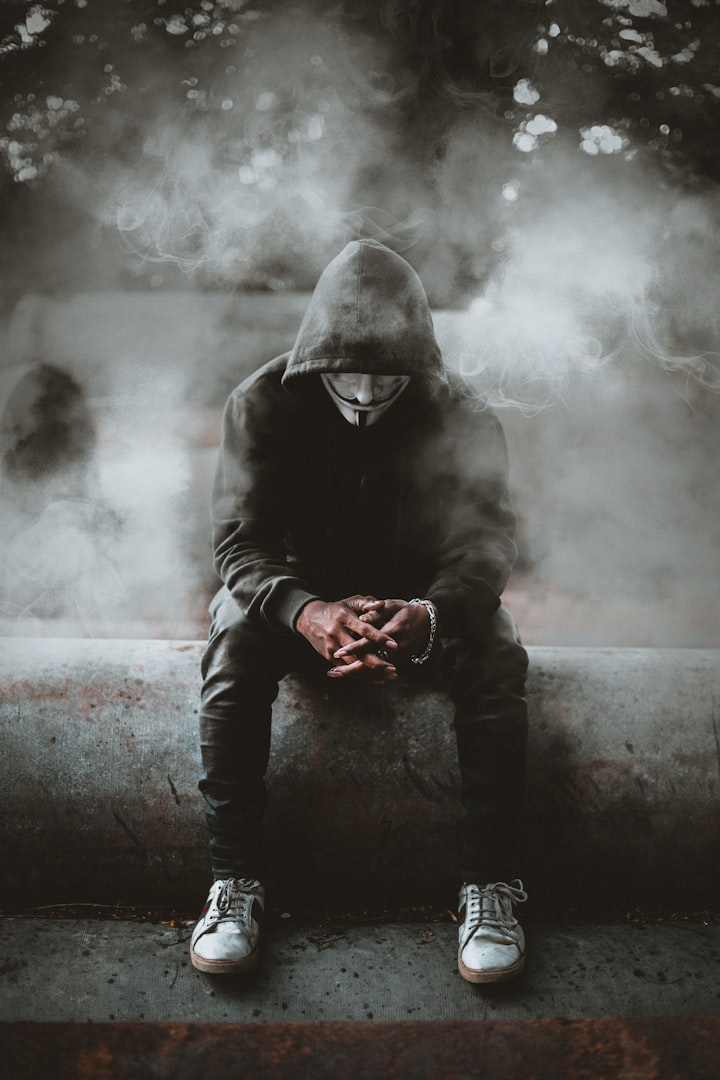You'll Never Take My Sanity! Part 2
Chapter 2: The DIRE Importance of Mental Health

Have a look at the photo above, if you will. Then go take a peak at my previous journal—it's the same photo. But it looks different, doesn't it? It's a bit more colourful, because I increased the saturation on it since last time. Otherwise, it's exactly the same—but it seems so different. Mental health issues have a way of doing the same thing—anyone who has them knows this. Those who don't have them have a hard time understanding it—I know this because I was one of the lucky few who never had any issues until the last couple of years (although, as you read through these journals, you'll find that this may not be actually true). Hence, the example.
I'm presently struggling with some mental health issues. About one year ago, I developed some pretty intense anxiety due to the sudden death of one of my best friends (screw you, cancer!) as well as an event I participated in as a spokesperson becoming a complete and utter public sh*t-show, and I lost a lot of money on it trying to (unsuccessfully) bail someone else out of a tough situation. Fast forward to now—a couple of weeks ago, things intensified to the point where I am almost certain I have depression. I'm very fortunate to have friends who are therapists so I was able to start getting help immediately after I realized I needed it. It's been very helpful in some ways, but in other ways everything's still the same. That's how it goes... you win some, you lose some, and then you win some more.
Except it's really not that simple. Of course not, nothing ever is.
You see, mental health and emotions are complex things, not simple. So it takes a lot of work to sort through things—especially when you're not used to it. I had a hard childhood that was filled with various forms of (non-sexual) abuse—when I became a young teenager I taught myself how to not cry and to "man up"—even though I never told anyone else to do that and even encouraged people to be open with their emotions, I couldn't. I don't know why anymore—I think I was just sick of crying all the time from being scared of my dad or whatever, so I just wanted to stop. But then, when it was necessary or expected, I couldn't cry even if I wanted to. Until recently, I hadn't cried in pretty close to 15 years. I would always downplay or over-simplify my feelings and push them aside. Kind of like what I did above—I over-simplified what happened last year. So now, let me do this the right way:
The final week of August 2017 was intense. I'm used to intense, but this pushed beyond anything I've ever even attempted to handle before. The even I mentioned before was to take place Friday through Sunday. On Monday, the venue threatened to cancel the event. That got solved though, and stressed died down for the most part. That night, my best friend Rod (who had been receiving chemotherapy for the past several weeks) came over to tell me how amazing he was feeling and the treatments were working and he had so much energy. He'd been feeling the best he'd felt in months, and couldn't wait to help his father-in-law put up siding on his shed.
Tuesday morning, Rod was found dead in his bed. Heart attack, we think.
Thursday through Sunday was the event set-up, and the event itself. I missed my best friend's funeral because I had to emcee the opening ceremonies of this event, which happened at the same time—and honestly, Rod would have wanted me to do my job. He was always that type... Anyway, I did my job, and missed the scattering of his ashes. And then, the event went to hell—organizationally, financially—every possible way imaginable. And my job as the emcee was to keep telling people about how amazing this thing was, and to hype everything up.
I felt like the biggest liar on the face of the planet. I still feel like it, honestly. The people involved have absolved me, knowing that I was doing my best to do my job, and they know that I wasn't being dishonest and was simply trying to salvage a bad situation—but I still feel like I became a fraud that day.
And that's how my anxiety was born. The depression came later, when I basically ran out of money. I'll talk more about that in chapter 3.
I'm in no position to preach to people about how to deal with mental health. I'm just learning about dealing with it myself. What I can do, though, and what I feel like I have to do, is to encourage people to talk about it. Don't hide it, don't let it build. Don't bury your emotions like I did because it doesn't help. It is the opposite of help. If you're experiencing mental health issues of any kind, any level of severity, talk to someone you trust.
If you are lucky enough to not have mental health issues, but know people who do, there are a few things that you can do that are super important and I'd like to encourage you to do them now: reach out to these people. Let them know that they are wanted and cared about. They may not take your hand right away—don't take it personally. It takes time for people to feel safe in the world—but when people like you are both patient AND not giving up on them, it's extremely helpful. Another important thing to do is to listen to them—really listen. Let them rant, let them vent, let them cry—just be there for them. It will likely get really awkward and uncomfortable, for them and for you... but stay strong, because they need a rock. One last really important thing is to not try and be more than you can be—which is something I'm often guilty of, and how I got myself into mental health issues to begin with. A human being is only capable of giving so much of themselves before they have nothing left to give. Be mindful of your own limitations, and don't go past them—otherwise, you run the risk of causing more damage to everyone involved instead of being useful. It sounds selfish and cowardly (or maybe it doesn't and I'm just really critical of myself), but it's important. If someone's mental health issues are too much for you to handle on your own, try to find resources that are better suited to help them, and encourage them to utilize them—find a therapist who has a good reputation for being compassionate and helpful, and tell your friend about them. Maybe even go with your friend the first time, and hang out in the waiting room as moral support—but for heaven's sake do not pretend to be a therapist if you can't be one.
I think that's enough for now. This is very incoherent, I know—I write these things at 1 in the morning, or later, after I've done as many things as I can to try and make myself tired enough to sleep and still can't sleep... plus it's also mainly my own therapy, getting things that are on my mind out of my mind. But I know I'm not the only person in the world thinking about these things. And if there's an iota of a chance that this can be of use to someone, somewhere, then it's not a waste of my time.
Talk to you in chapter 3.
About the Creator
Justin Foley
I'm an actor, entertainer, film-maker, musician, cosplayer, geek, event and entertainment consultant and depending on who you ask: teetering on the edge of insanity and being a human cartoon. Seriously--when I fall, my body goes "Boink".






Comments
There are no comments for this story
Be the first to respond and start the conversation.